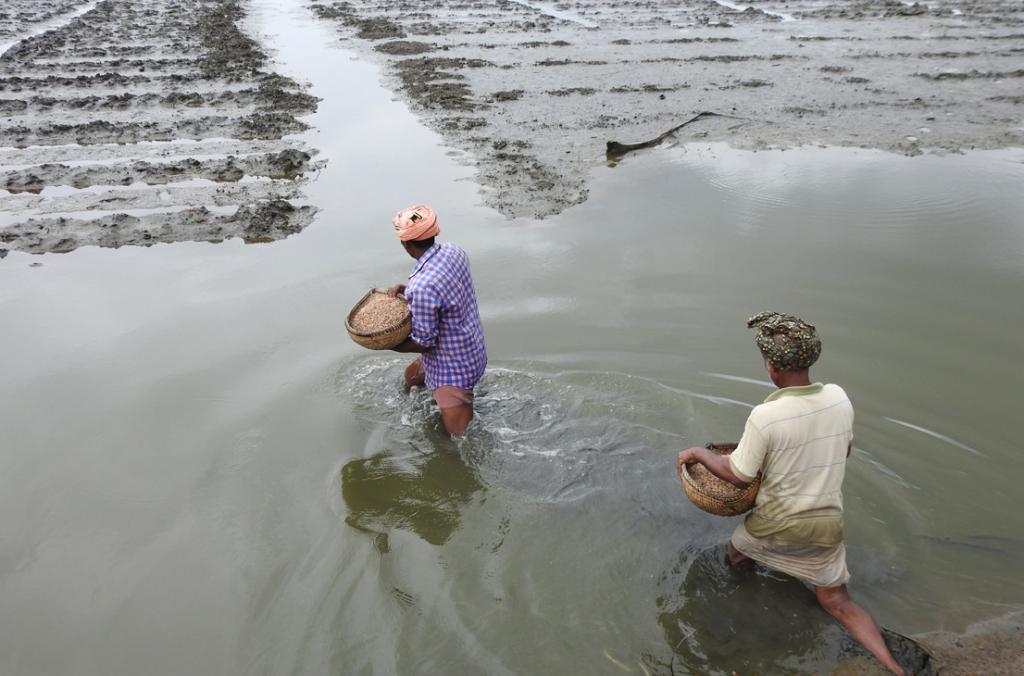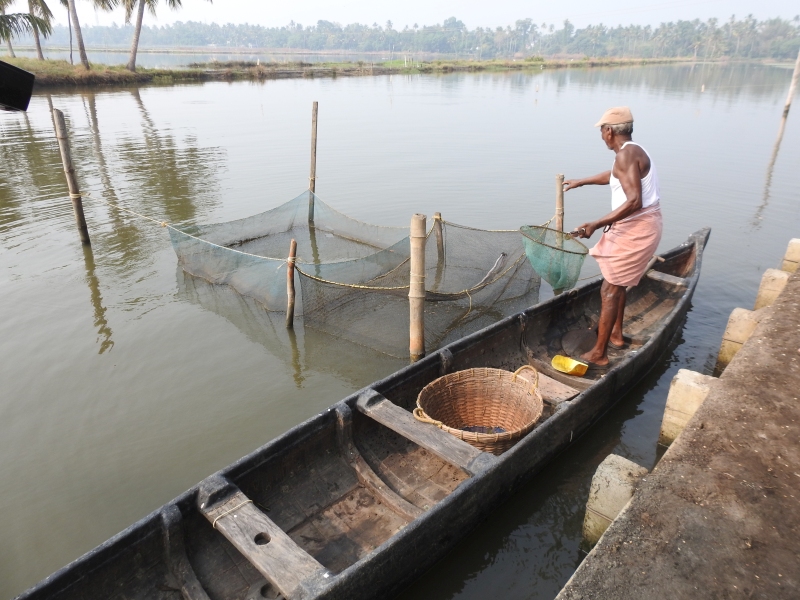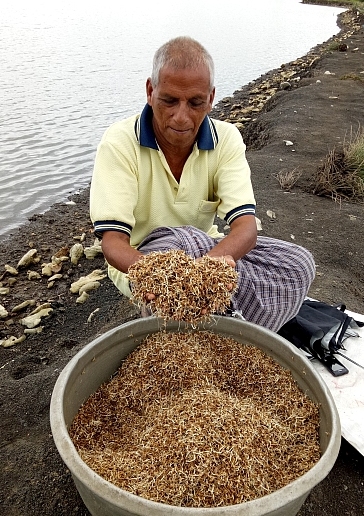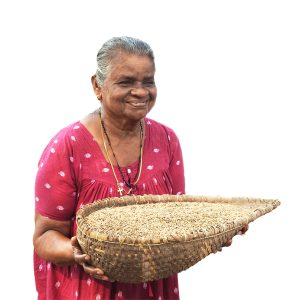In coastal ecosystems, Pokkali (a unique saline-tolerant rice variety) is being cultivated along with extensive aquaculture. The Pokkali fields are unique ecosystems in central Kerala with rich biodiversity with a completely different method of farming. The salt-tolerant rice variety is cultivated from the month of June to November followed by filtered shrimp, prawn or fish culture in the second season (November to April) under the traditional farming system. The organically-grown Pokkali is famous for its unique taste and culinary properties. Farmers also claim that this rice has extra-large grains and several medicinal properties.



For the past several decades, Pokkali cultivation is witnessing an unprecedented downfall in the area and production. The major reasons behind this include the unavailability of quality seeds, vagaries in climate, increased cost of cultivation and labour-related issues. In addition to this, the support services given to the Pokkali farmers are insufficient, especially with regard to storage and value addition. Besides, Aquaculture support services are also not enough to sustain a farm family. In addition, it’s important to note that out of the 4000ha of land under Pokkali cultivation, around 3600ha was not being utilized for cultivation for a long period of time. Adding to the woes, farm mechanization is nearly impossible as the rice is cultivated in standing waters! Hence, it was the need of the hour to revive Pokkali cultivation in the coastal area to protect the ecosystem and sustain farmers’ livelihoods.
As part of the HDFC Bank Parivartan Project, MSSRF took up the revival of the Pokkali cultivation with two main objectives viz., increase the availability of quality Pokkali seeds by creating 24 model farms and augment the availability of shrimps and fishes in the Pokkali region.
This programme was conducted in five villages of Ernakulam district namely Ezhikkara, Kottuvally Kadamakudy, Varapuzha and Nayarambalam. An array of activities were employed to achieve the above said objectives with the support of research institutions, resource persons, skilled people etc. Training programmes were given to farmers with the support of Kerala Agriculture University (KAU), Rice Research Station, Vyttila and other institutions. Farmers were also supported for sluice renovation and earthen bunds to prevent the entry of water. Coconut seedlings were also given to reinforce the earthen bunds with 33 numbers per ha of land in three villages. Quality prawn fingerlings were also supplied to the farmers in sufficient quantity to generate income for livelihood support.

Project Benefitted
7 Farmer cluster
258 farmers
254 hectares
In addition to all these inputs, farmers were also bestowed with labour support for seed drying and the cost incurred for warehouses. In addition, the project also provided machinery support to 3 farmer clusters, Ezhikkara, Kottuvally and Kadamakkudy and Varapuzha villages viz. paddy winnower, Brush cutter, and Paddy Thrasher. Machinery support helped with drudgery reduction and eased the process of paddy harvest, especially addressing labour-related challenges.
